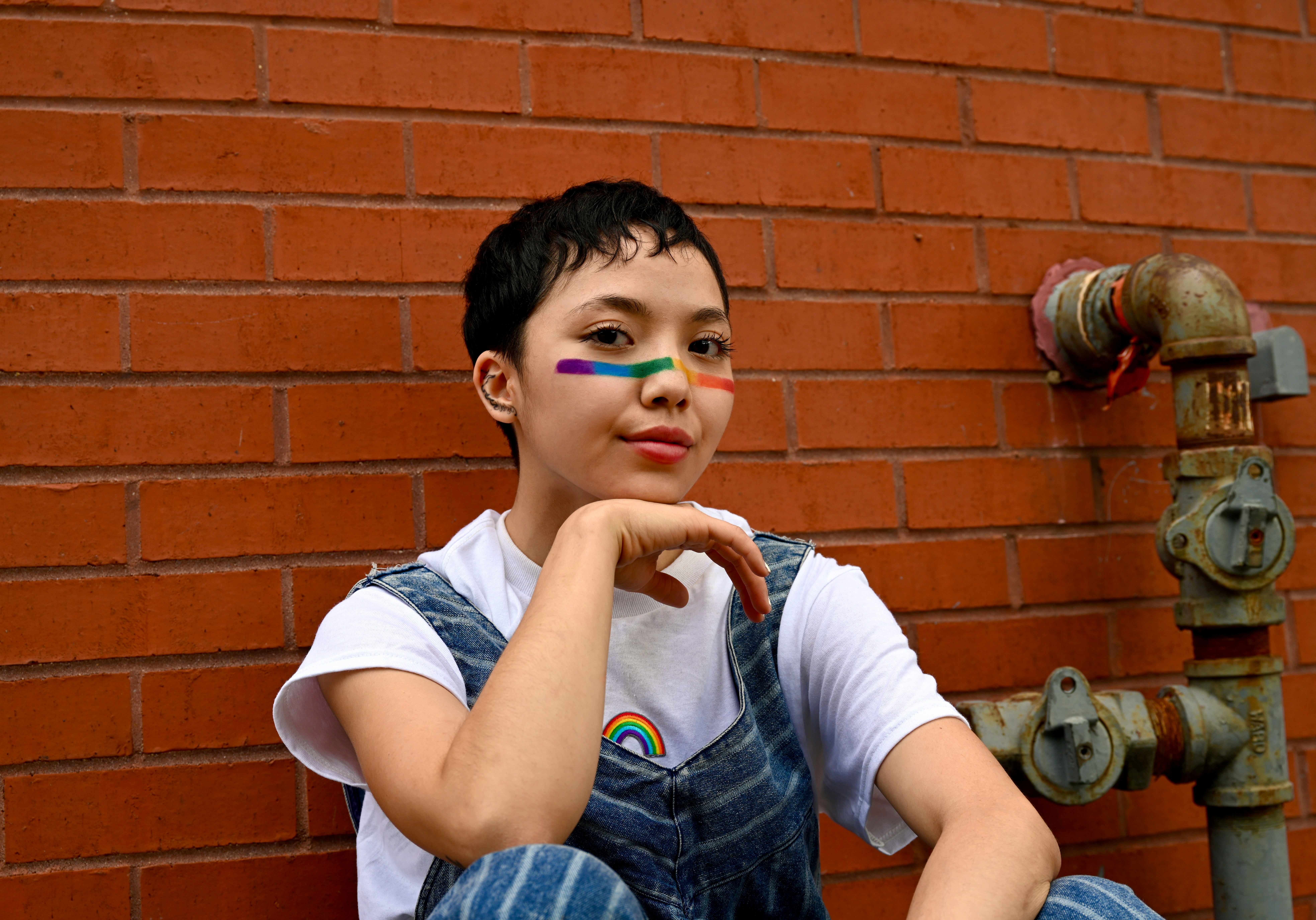Charlie* was looking for somewhere they could explore their emerging identity and feel supported as they considered socially transitioning – that is, beginning to live and be recognised in everyday life as their true gender. Their biggest wish was for a safe, non-judgmental space where they could reflect, be heard, and build the confidence to come out to their family when ready.
Charlie was referred to Free2Talk by their school in January 2023. Free2Talk, run by the charity Free2B, gives LGBTQ+ young people safe, identity-affirming support to explore who they are and feel they belong.
Charlie’s experience is far from unique. Across the UK, LGBTQ+ young people face higher rates of bullying, discrimination, rejection and poor mental health than their peers. They do not feel supported or safe simply because of who they are.
Alongside their one-to-one mentoring sessions, Charlie joined one of Free2B’s youth groups. Being part of a community of peers who understood and respected their journey helped them feel less alone and more hopeful. In their individual sessions, Charlie’s mentor focused on what helped them feel good in their identity. They got the opportunity to explore different names, tried androgynous clothing, and reflected on which forms of expression felt most comfortable and affirming. Charlie also had to navigate difficult moments, such as receiving female-focused Christmas gifts that did not align with their identity. Together with their mentor, they developed strategies for self-advocacy and emotional resilience.
Like many others, Charlie had already experienced moments of isolation and rejection. Survey data shows that between 58 and 68 per cent of LGBTQ+ young people report having suicidal thoughts, as many as one in five have tried to end their own lives, and they are twice as likely to be bullied at school compared to their heterosexual, cisgender peers. Rates of anxiety, depression, and self-harm are also far higher. These outcomes are rooted in exclusion, discrimination and a lack of appropriate support. For many, mainstream services don’t fully meet their needs. This can be because support time and interactions are too limited to provide wider support, or because services are set up to deliver specific interventions in ways that don’t build the trust and relationships needed to effectively engage and support LGBTQ+ young people. This limits the impact of existing services and may perpetuate inequalities in access or outcomes.
Free2Talk exists to change that. Delivered by the charity Free2B, the programme offers one-to-one mentoring, safe spaces, and trusted adults for LGBTQ+ young people who often fall through the gaps in mainstream provision. Its tailored, identity-affirming approach helps young people explore gender and sexual identity, cope with bullying, and navigate life events like the experience of family rejection. Sessions provide practical tools, emotional support and a space in which young people feel seen and valued. Group activities bring together peers who understand each other’s experiences, building a sense of belonging.
Behind all powerful individual case studies sits a crucial question: what difference does the service make? Understanding wellbeing, the sense of how we are feeling and functioning, can provide practical and powerful insights into the impact and value of services. Our analysis shows that young people who took part in Free2Talk experienced improvements in wellbeing equivalent to nearly a full point increase on a 0–10 life satisfaction scale. That’s a bigger boost than the average gain associated with recovering from depression.
The annual value of these wellbeing benefits is estimated at £15,600 per participant. If sustained for a year, this means the programme could deliver £4 of wellbeing benefits for every £1 pound spent on the programme. Comparing the results of Free2Talk with data from young people who did not take part, shows that participants in Free2Talk saw much bigger improvements in mental wellbeing, despite starting from a similar point. Charlie’s growing confidence and self-understanding show this in action.
These estimates show the direct benefits of the program for wellbeing. They do not include possible long-term economic benefits that may come from its wider impact. Having a trusted adult, like those involved in Free2Talk’s mentoring program, is linked to better mental health, higher educational achievement and greater life satisfaction. We cannot yet measure the effects in terms of reduced need for mental health services or increased future earnings due to better education, but these factors likely add significant economic value to the program.
Community-based, identity-affirming services like Free2Talk are essential. They can reach LGBTQ+ young people in need and provide cost-effective, life-changing support. The evidence of the health inequalities faced by LGBTQ+ young people shows the pressing need for greater availability of services like Free2Talk, which are tailored to the realities of young people’s lives and can meet LGBTQ+ young people where they are.
*Name has been changed to protect privacy.


